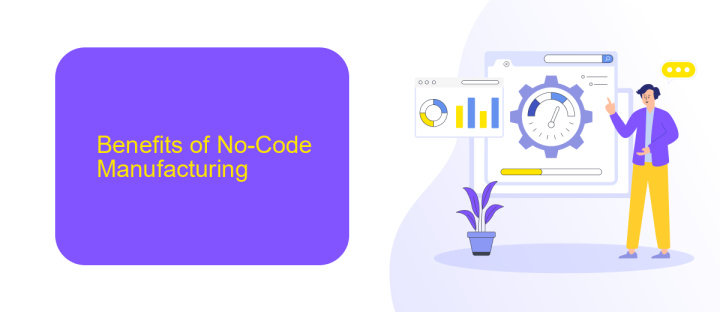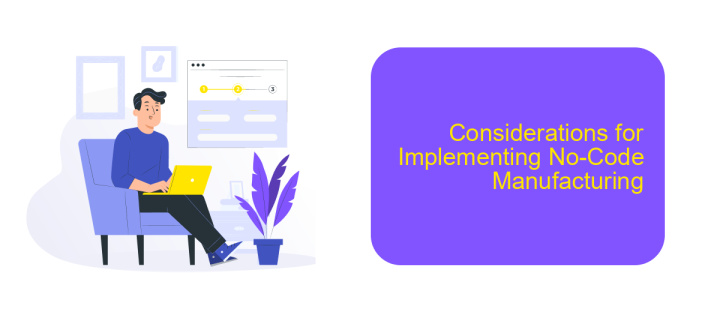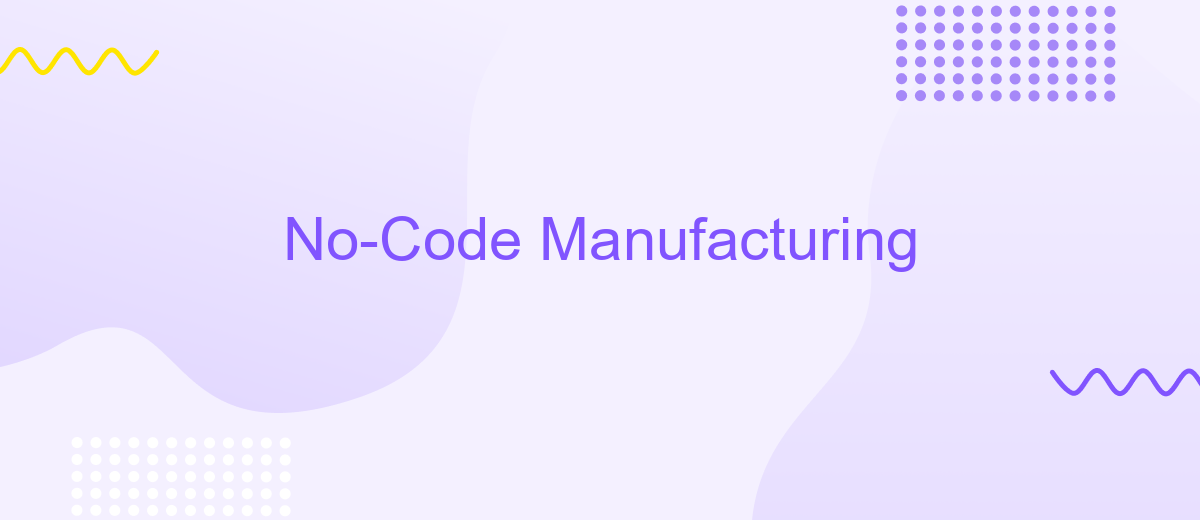No-Code Manufacturing
The rise of no-code manufacturing is revolutionizing the industry by enabling businesses to streamline production processes without the need for extensive programming knowledge. This innovative approach empowers manufacturers to create, modify, and optimize workflows using intuitive visual interfaces, significantly reducing development time and costs. As a result, companies can rapidly adapt to market demands, enhance efficiency, and drive innovation like never before.
What is No-Code Manufacturing?
No-Code Manufacturing is a revolutionary approach that allows businesses to streamline their manufacturing processes without the need for extensive coding knowledge. This method leverages user-friendly platforms to create, manage, and optimize manufacturing workflows, making it accessible to a broader range of users.
- Ease of Use: Intuitive interfaces enable users to set up and modify workflows quickly.
- Cost-Effective: Reduces the need for specialized IT staff and expensive software development.
- Flexibility: Easily adaptable to changing manufacturing needs and requirements.
- Integration: Seamlessly connects with existing systems and tools through services like ApiX-Drive.
By utilizing No-Code Manufacturing, companies can significantly reduce the time and resources spent on developing custom solutions. Platforms like ApiX-Drive facilitate the integration of various tools and systems, ensuring smooth and efficient operations. This empowers businesses to focus more on innovation and less on technical complexities, ultimately driving growth and productivity.
Benefits of No-Code Manufacturing

No-Code Manufacturing offers significant advantages by enabling businesses to streamline their production processes without the need for extensive coding knowledge. This approach empowers manufacturers to quickly adapt to changing market demands, reduce development costs, and improve time-to-market. By utilizing intuitive platforms, companies can create, modify, and deploy manufacturing workflows efficiently, minimizing the dependency on specialized IT personnel and accelerating innovation within the industry.
Additionally, No-Code Manufacturing facilitates seamless integration with various systems and applications, enhancing operational efficiency. Services like ApiX-Drive simplify the process of connecting different software solutions, allowing manufacturers to automate data flow and synchronize operations effortlessly. This leads to improved accuracy, reduced manual errors, and a more cohesive production environment. Ultimately, No-Code Manufacturing democratizes technology, enabling businesses of all sizes to leverage advanced manufacturing capabilities and stay competitive in a rapidly evolving market.
Use Cases for No-Code Manufacturing

No-code manufacturing platforms are revolutionizing the industry by enabling companies to streamline operations without extensive programming knowledge. These platforms allow manufacturers to quickly adapt to changing market demands and optimize their processes with ease.
- Production Line Automation: No-code tools can automate repetitive tasks on the production line, reducing human error and increasing efficiency.
- Inventory Management: Manufacturers can use no-code solutions to track inventory levels in real-time, ensuring they always have the necessary materials on hand.
- Quality Control: No-code platforms enable the creation of custom quality control workflows, ensuring that all products meet the required standards.
- Integration with Other Systems: Services like ApiX-Drive can facilitate seamless integration between different software systems, enhancing data flow and operational coherence.
- Data Analysis and Reporting: No-code platforms allow manufacturers to build custom dashboards and reports, providing valuable insights into production performance and areas for improvement.
By leveraging no-code manufacturing solutions, companies can enhance their agility, reduce costs, and improve overall productivity. These tools empower businesses to innovate rapidly and respond to market changes without the need for extensive IT resources.
Considerations for Implementing No-Code Manufacturing

Implementing no-code manufacturing solutions can significantly streamline production processes, but there are several key considerations to keep in mind. Firstly, it is essential to assess the specific needs of your manufacturing operations to determine which no-code tools will be most effective. Understanding the capabilities and limitations of these tools can help in making informed decisions.
Another crucial aspect is the integration of no-code platforms with existing systems. Ensuring seamless data flow and communication between various applications is vital for maintaining efficiency. Services like ApiX-Drive can facilitate these integrations by providing user-friendly interfaces for connecting different software without the need for extensive coding knowledge.
- Evaluate the compatibility of no-code tools with current systems.
- Consider the scalability of the no-code solution for future growth.
- Ensure adequate training and support for staff to maximize tool usage.
- Monitor and assess the performance of implemented no-code solutions regularly.
Lastly, it is important to maintain a proactive approach by continuously exploring new no-code technologies and updating existing systems. Staying informed about industry advancements can help in leveraging the full potential of no-code manufacturing, ultimately leading to increased productivity and reduced operational costs.
Future of No-Code Manufacturing
The future of No-Code Manufacturing promises a transformative shift in how industries approach production processes. By eliminating the need for extensive coding knowledge, companies can empower a broader range of employees to contribute to the development and optimization of manufacturing workflows. This democratization of technology is set to accelerate innovation, reduce time-to-market, and lower costs, thereby providing a competitive edge. With the advent of advanced no-code platforms, manufacturers can rapidly prototype, test, and deploy new solutions, ensuring they remain agile in a constantly evolving market landscape.
Integration of various systems and processes will be crucial in the future of No-Code Manufacturing. Tools like ApiX-Drive are paving the way by offering seamless integration solutions that connect different software and applications without the need for coding. This enables manufacturers to automate workflows and ensure data consistency across platforms, significantly enhancing operational efficiency. As no-code technology continues to evolve, we can expect even more sophisticated integrations, allowing for a more interconnected and intelligent manufacturing environment.
FAQ
What is No-Code Manufacturing?
How can No-Code Manufacturing benefit my business?
Is No-Code Manufacturing scalable for large operations?
Can I integrate No-Code Manufacturing with my existing systems?
Do I need technical expertise to use No-Code Manufacturing platforms?
Apix-Drive is a simple and efficient system connector that will help you automate routine tasks and optimize business processes. You can save time and money, direct these resources to more important purposes. Test ApiX-Drive and make sure that this tool will relieve your employees and after 5 minutes of settings your business will start working faster.

